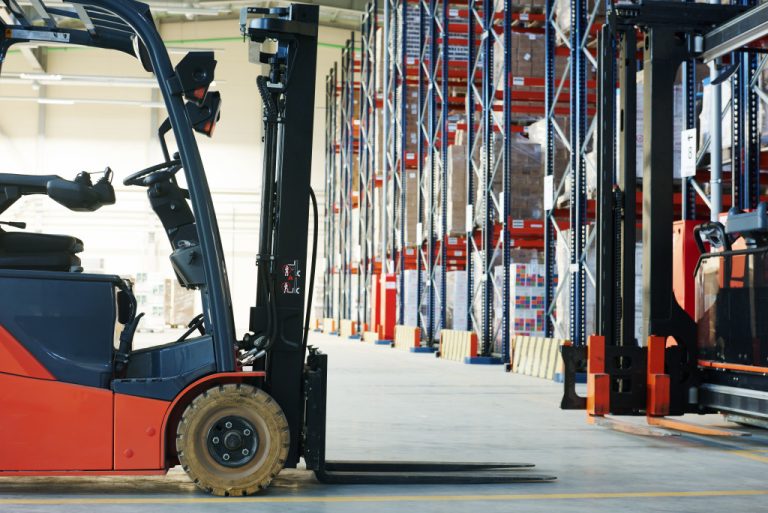- Singapore has invested in infrastructure, training programs, and incentives for adopting electric forklifts.
- Electric forklifts provide increased efficiency, reduced noise levels, fewer emissions, and improved safety standards.
- They are widely used in construction, warehousing, logistics, manufacturing, and food & beverage industries.
- Collaboration between the government and research institutions has led to the development of advanced electric forklift technology with improved efficiency.
- The government offers rebates on acquisition costs, license fees, and road tax to encourage companies to adopt this technology.
Electric forklifts have been used for decades but have become increasingly popular and more sophisticated in recent years. Singapore is one of the countries that has embraced technology for good reasons. An electric forklift is excellent for indoor use, produces less noise, and emits fewer pollutants than its gas and diesel counterparts.
With the world becoming more environmentally conscious, electricity is increasingly being considered for powering equipment instead of traditional fossil fuels. Singapore is not lagging since the country is taking multiple steps towards adding electric forklift technology. Here are five ways Singapore embraces technology and various industries using it today.
1. Education and Training
With the emergence of electric forklifts, there is a need for a comprehensive education and training program to ensure proper handling and maintenance of the equipment. To address this need, Singapore has established several programs to ensure that there are appropriate competencies for skill sets. The programs train operators to drive electric forklifts and how to maintain and handle them daily.
2. Availability of Charging Stations
The widespread availability of charging stations is essential for electric forklift technology to thrive. Singapore has invested heavily in infrastructure that allows operators to charge the equipment easily. The charging stations are convenient to use and time-efficient, ensuring little disruption of workflow and avoiding downtimes.

3. A Wider Range of Electric Forklifts
The manufacturers of electric forklifts provide a diverse range of options, from small, efficient machines to larger, more capable equipment. Singapore has taken steps to ensure an adequate supply of these forklifts to cater to different industries. Furthermore, dealerships in the country also provide consultation and guidance to potential users on their requirements for the type of forklifts required for specific tasks.
4. Rebates and Incentives
Governments worldwide are providing incentives to support the adoption of electric forklifts. In Singapore, the government provides direct rebates and incentives to companies that adopt this technology, giving them a much-needed financial lift. These benefits include rebates on acquisition costs, license fees, and reduced road tax on electric forklifts.
5. Increased Collaboration
Collaboration between the government and research institutions is essential for progress and the continued development of electric forklift technology. Singapore collaborates with research institutions to develop advanced electric forklift technology with improved efficiency, power, and longevity. Moreover, it can be a great option for many companies who want to make their mark in their industry.
Industries Using This Kind of Technology
Various industries are growing because of this kind of technology. Here are five of them:

Construction Industry
It’s estimated that the worldwide construction industry is worth around $6 trillion. One of the essential pieces of equipment used in the industry is forklifts. Electric forklifts are preferred for construction sites due to their efficiency, low noise levels, and lack of pollutants.
Warehousing Industry
For a long time now, manual labor has been dominant in warehouses. But with electric forklifts, workers can complete multiple tasks efficiently and precisely. They also reduce fatigue and improve safety as they require less physical exertion than manual labor.
Logistics Industry
Currently, the logistics industry is worth around $9 trillion. Electric forklifts are ideal for logistics companies because they offer better maneuverability in tight spaces, improved productivity, and fewer emissions. Furthermore, there is no need to refuel or refuel downtime since these machines run on batteries that can be recharged quickly.
Manufacturing Industry
Electric forklifts are used widely in the manufacturing industry. Their advantages include less noise, fewer emissions, and improved maneuverability in tight spaces. Moreover, they help increase productivity while reducing fuel costs and maintenance requirements.
Food and Beverage Industry
The food and beverage industry relies heavily on electric forklifts for transporting goods from warehouses to retail outlets. They provide increased efficiency, allowing faster delivery times and improved safety standards. Electric forklifts also reduce noise levels and lower CO2 emissions compared to traditional gas-powered equipment.
Overall, Singapore is leading the way in embracing electric forklift technology. The country has invested heavily in infrastructure, training programs, incentives, and collaboration with research institutions for continued progress. This has resulted in increased adoption of electric forklifts in various industries, offering numerous benefits for operators and businesses.









